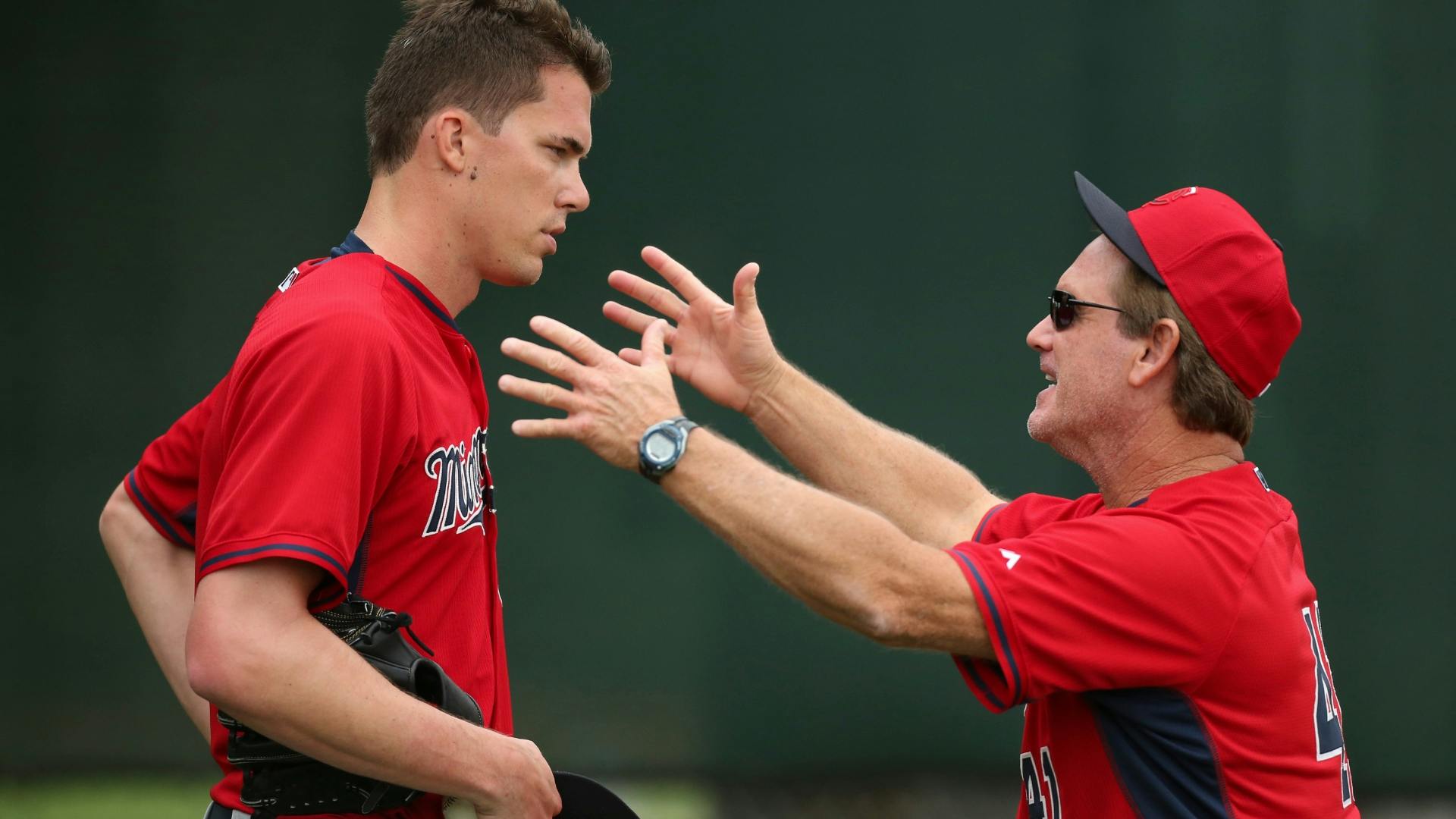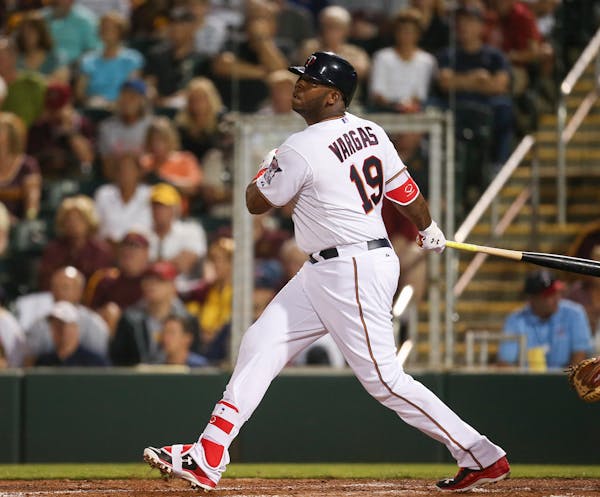CLEARWATER, Fla. – Paul Molitor called it interesting trivia, but not particularly meaningful to him.
"For me," the Twins manager said, "it's about managing against a friend."
Maybe so, but that friend — Phillies manager Ryne Sandberg — just happens to be in the National Baseball Hall of Fame, inducted in 2005. And with Molitor, Class of '04, in the other dugout, an otherwise forgettable Grapefruit League game made baseball history on Monday.
It's the first time that two Hall of Fame players have managed against each other, and while it will mean more if they someday face each other in the regular season, Sandberg and Molitor clearly enjoyed the moment. They even agreed to throw out the honorary first pitches together.
"We'd tell stories at the Hall of Fame induction weekend, and talk about [managing]," Sandberg said. "In that regard, I'm glad to see it. I'm glad to see where Mollie's at."
They told a few stories Monday, too, about managers who influenced them. Molitor, who next month will manage his first regular-season game, cited Cito Gaston and Tom Kelly, "the most attention-to-detail manager I ever had. I learned so much from him."
Sandberg, entering his second full season as manager in Philadelphia after a 17-year career mostly with the Chicago Cubs, said Jim Frey, who managed the Cubs from 1984 to '86, had a major effect on his career.
"My first two years, I was able to use the whole field, but I had trouble on inside pitches and fastballs in. So he took me aside in spring training and actually had me, for a week, take two rounds of batting practice and try to hit the tarp over in foul [ground], to learn how to clear the hips and how to get the head out," Sandberg said. "That year, I went up in home runs and started to drive the ball. So I learned something about asking a player to do something, seeing the talent and how to go about" improving it.
Why don't more Hall of Famers become managers? Molitor discounted the commonly held belief, he said, that great players don't have patience with players who don't have their talent.
"I don't see that at all. It's how you're wired, what your passion is, and then you put in the time," he said. "There's so much failure in the game, whether you play in a high level or not. I would like to think I'm a little patient. You're willing to be a little more patient with a guy who goes about his business."
Sandberg said patience always came naturally to him — because it had to.
"I was a .230 lifetime April hitter, for 17 seasons. So I had to be patient with myself," he said with a laugh. "I had to work my way out of slumps, it seemed like, to start every season. That took a lot of patience, so that was something I took with me into the minor leagues" as a manager.
That's another thing the managers have in common, Sandberg said: A willingness to work your way up. He spent six seasons managing in the minor leagues before getting a chance with the Phillies. Similarly, Molitor spent nearly a decade as a minor league instructor for the Twins, traveling to each of the team's affiliates.
"In some regard, [you must] show baseball that you're interested in it," Sandberg said. "In the past, there have been some Hall of Famers that wanted to manage or coach at the major league level, but not go through the channels to earn that right."

